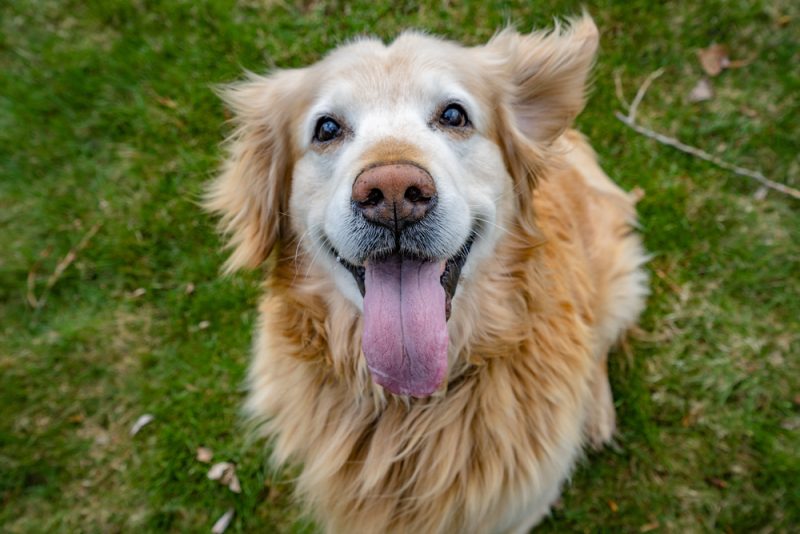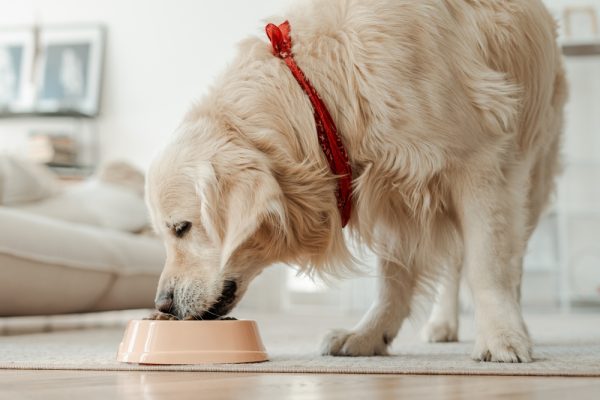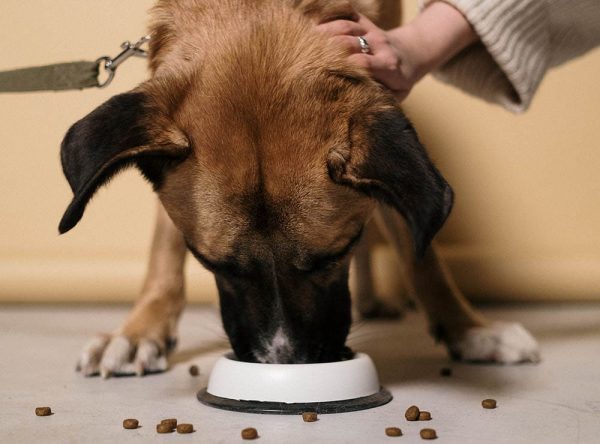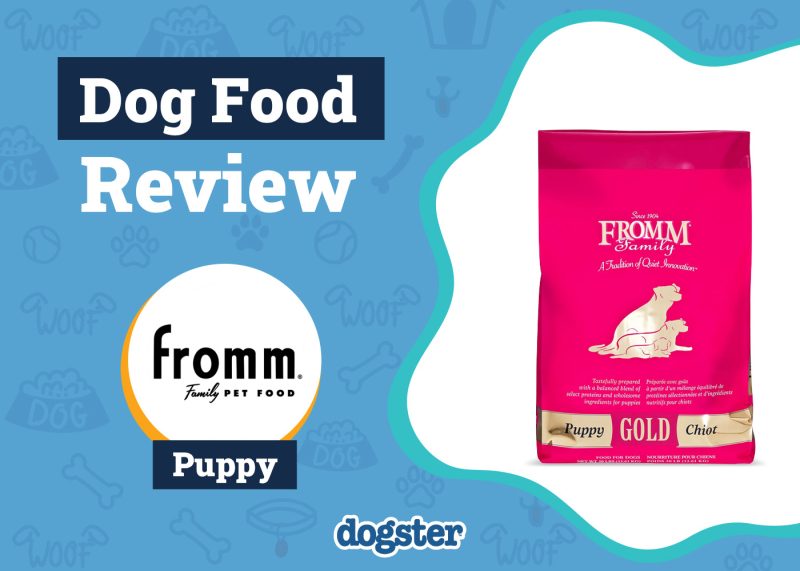In this article
Hypoallergenicity has become an essential focus in the pet world in recent decades as breeders look for new ways to cater to allergy-suffering dog lovers. Novel breeds are gaining rapid popularity, with the thriving Doodle trend providing us with a slew of “allergen-free” canines. With all the attention and hype surrounding them, it is easy to forget that 100% hypoallergenic dogs don’t exist!
While dogs listed as hypoallergenic can provide relief for allergic owners, the focus on a non-shedding coat overlooks the nature of canine allergens. Let’s unravel the myth of the hypoallergenic dog and explore how sensitivity to canines works.

What Causes Dog Allergies?
Roughly 10%–20% of the world’s population has a cat or dog allergy.1 The proteins in a dog’s hair, fur, skin, urine, and saliva can cause a reaction when they make contact with a sensitive individual. Dead skin cells, called dander, are a primary source of allergens, as dogs shed it like dandruff.
Eight canine allergens (Can f 1–Can f 8) originate in the mouth, skin, and prostate, with Can f 1 affecting the highest percentage of people with allergies. Sufferers can be allergic to one or several allergens and to not others.
Therefore some people may be allergic only to male dogs. Unaltered males are the only ones to produce the Can f 5 protein, which is a canine allergen originating in the prostate that spreads to the skin and hair through urine.2

Do All Dogs Produce Allergens?
Outside of the male-only Can f 5 protein, all dogs produce allergens. Even if a dog doesn’t shed much, their skin, saliva, and urine can still carry and release these proteins. As a result, no hypoallergenic dog breed truly exists.
However, some dogs produce fewer of these allergens than others, though not the ones that you might expect. For instance, one study showed that Labrador Retrievers had lower Can f 1 levels in their dander, while another indicated that breeds like the Dogue de Bordeaux and Golden Retriever had fewer allergens in their saliva.3, 4
Further research has also suggested that males generally produce more of the major allergen than females.5
Do Hypoallergenic Breeds Produce Fewer Allergens?
Interestingly, studies found that homes with “hypoallergenic” dogs had similar levels of major canine allergens as those containing non-hypoallergenic dogs.6 Many non-shedding breeds are gentler to allergy sufferers because of the limited hair and dander that they leave around the home. But since they still produce allergens and variations in their levels exist between dogs of the same breed, guaranteeing that allergy sufferers won’t be sensitive to certain dogs is impossible.

Signs of Allergies to Dogs
People allergic to dogs have an immune response to the proteins that canines produce. Their bodies view these harmless molecules as threats and develop antibodies to combat them.
- Sneezing and congestion
- Facial pain and pressure
- Red, watery, and itchy eyes
- Skin rash
- Coughing, wheezing, shortness of breath, and other asthma signs
A skin-prick test is a popular method of diagnosing a dog allergy. An allergist places a sample of dog allergens on your skin and pricks it with a needle to introduce it to your body. After several minutes, an allergic reaction may appear, confirming your sensitivity to dogs.
A test for your allergy is crucial. You may think that you have dog allergies, but another environmental factor could be behind the reaction, such as outdoor pollen that your dog carries on their coat.
Which Dogs Are Considered Hypoallergenic?
The breeds commonly touted as hypoallergenic are typically low shedders and minimal droolers. There is little focus on actual allergen production, as Labs rarely make the list of most allergy-friendly dogs despite having fewer allergens than most breeds. Instead, allergy sufferers look for breeds less likely to spread allergens through shed hair, dander, and drool.
The most popular varieties include:
- Poodles, Portuguese Water Dogs, and other curly-coated water dogs
- Poodle mixes, such as Labradoodles and Cavapoos
- Terriers, Schnauzers, and other wire-haired breeds
- Bichon-type dogs, such as Maltese, Bichon Frise, and Coton du Tulear
- Flocked or corded dogs, such as the Bergamasco and Puli
- Hairless breeds, including the Xoloitzcuintl and American Hairless Terrier
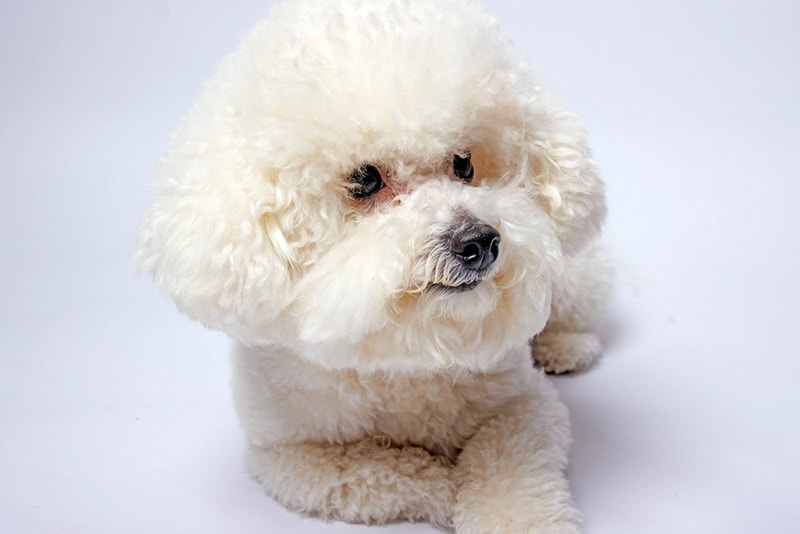
How to Live With a Dog and Allergies
As many experts would suggest, the easiest and most dependable way to get over dog allergies is to remove the dog from your home. Of course, that’s a non-option for devoted canine lovers who have made their furry friend a part of the family, so looking for compromises is an understandable approach.
Talking with your doctor to confirm your allergies is an excellent first step in managing your sensitivity. They can provide solutions like allergy shots to lower your sensitivity or steroid and antihistamine treatments to reduce physical signs.
- Using a HEPA air filter to trap airborne allergens
- Vacuuming daily with a HEPA vacuum
- Bathing your dog regularly to remove dead hair and skin
- Limiting your pet’s access to certain rooms
- Brushing your dog daily in an outdoor space
- Changing your HVAC filter at least once every 90 days
Although no dog is completely hypoallergenic, regular bathing can help reduce the amount of dander and other allergens in their fur and the air. We highly recommend Hepper's Oatmeal Pet Shampoo for this job!
- Only Natural Pet Shampoo - Our vegan, plant-based formulation is made with safe and natural...
- No Soap - A cat and dog wash free from soaps, glutens, dyes, DEA, sulfates and phthalates means it's...
- Colloidal Oatmeal - Formula soothes and nourishes dry, irritated skin, providing itchy skin relief...
At Dogster, we've admired Hepper for many years, and decided to take a controlling ownership interest so that we could benefit from the outstanding designs of this cool pet company!

Final Thoughts
Hopeful adopters need to be cautious before choosing their next dog. Despite the marketing and excitement surrounding supposed “hypoallergenic” breeds, every dog produces allergens, and all can spread them throughout a home.
Low-shedding dogs can indeed be the answer for many. But every allergy sufferer should spend quality time with their breed of choice before adopting to ensure that they and their dog will have the best possible experience together.
Featured Image Credit By: michaelheim, Shutterstock









